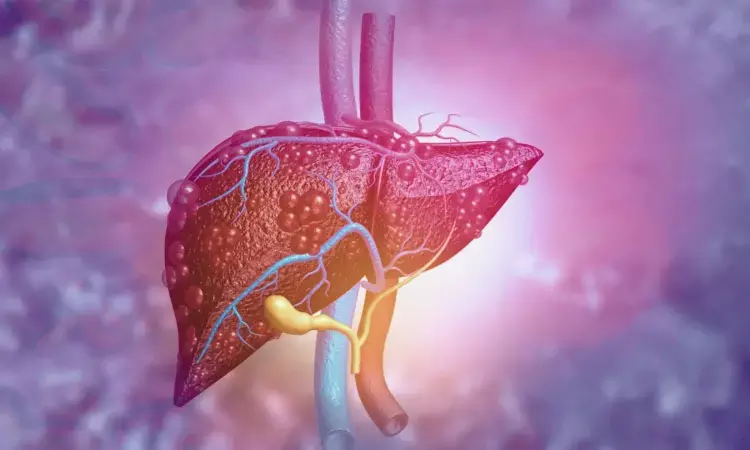- Home
- Medical news & Guidelines
- Anesthesiology
- Cardiology and CTVS
- Critical Care
- Dentistry
- Dermatology
- Diabetes and Endocrinology
- ENT
- Gastroenterology
- Medicine
- Nephrology
- Neurology
- Obstretics-Gynaecology
- Oncology
- Ophthalmology
- Orthopaedics
- Pediatrics-Neonatology
- Psychiatry
- Pulmonology
- Radiology
- Surgery
- Urology
- Laboratory Medicine
- Diet
- Nursing
- Paramedical
- Physiotherapy
- Health news
- Fact Check
- Bone Health Fact Check
- Brain Health Fact Check
- Cancer Related Fact Check
- Child Care Fact Check
- Dental and oral health fact check
- Diabetes and metabolic health fact check
- Diet and Nutrition Fact Check
- Eye and ENT Care Fact Check
- Fitness fact check
- Gut health fact check
- Heart health fact check
- Kidney health fact check
- Medical education fact check
- Men's health fact check
- Respiratory fact check
- Skin and hair care fact check
- Vaccine and Immunization fact check
- Women's health fact check
- AYUSH
- State News
- Andaman and Nicobar Islands
- Andhra Pradesh
- Arunachal Pradesh
- Assam
- Bihar
- Chandigarh
- Chattisgarh
- Dadra and Nagar Haveli
- Daman and Diu
- Delhi
- Goa
- Gujarat
- Haryana
- Himachal Pradesh
- Jammu & Kashmir
- Jharkhand
- Karnataka
- Kerala
- Ladakh
- Lakshadweep
- Madhya Pradesh
- Maharashtra
- Manipur
- Meghalaya
- Mizoram
- Nagaland
- Odisha
- Puducherry
- Punjab
- Rajasthan
- Sikkim
- Tamil Nadu
- Telangana
- Tripura
- Uttar Pradesh
- Uttrakhand
- West Bengal
- Medical Education
- Industry
MASLD Increases Atrial Fibrillation Risk More Than Alcohol, suggests study

Researchers have discovered that metabolic dysfunction-associated steatotic liver disease (MASLD) greatly increases the risk of developing atrial fibrillation (AF), more so than alcohol-related liver damage. The study was conducted by Minkwan K. and colleagues published in the Journal of the American Heart Association. The results stress that metabolic derangements, rather than alcohol alone, are responsible for the increased risk of AF in such patients.
With increasing evidence showing an association between liver disease and cardiovascular complications, researchers sought to establish the role of MASLD and alcoholic variants to incident atrial fibrillation. From 362,285 individuals who had undergone health examinations between 2009 and 2010, researchers undertook a retrospective study up to 2019 from the Korean National Health Insurance database. After the exclusion of those with other liver disease and heavy drinkers, 206,455 participants with a fatty liver index were analyzed in the final model.
Participants were grouped into four groups according to steatotic liver disease status and alcohol use behaviors. The main endpoint was new atrial fibrillation diagnosis, with ischemic stroke and heart failure additionally considered as related outcomes.
Key Findings
• During a median follow-up duration of 9.6 years, new-onset atrial fibrillation occurred in 5,335 participants, that is, 2.74 cases per 1,000 person-years.
• MASLD without alcohol was characterized by a 32% higher risk for AF (adjusted hazard ratio [aHR], 1.32; 95% CI, 1.23–1.41; P<0.001).
• MASLD with alcohol or metabolic dysfunction–associated steatotic liver disease with greater alcohol use demonstrated a 48% increased risk of AF (aHR, 1.48; 95% CI, 1.36–1.61; P<0.001).
• Among all subjects, nondrinking MASLD patients had a higher risk of AF by 11% compared with other drinkers, independent of their disease status (aHR, 1.11; 95% CI, 1.02–1.20; P=0.011).
This research verified that metabolic dysfunction-associated steatotic liver disease even without alcohol consumption, considerably elevates the risk of atrial fibrillation. The findings emphasize the relevance of identifying MASLD as an independent cardiovascular risk factor and necessitate active management of metabolic well-being to avert AF. Physicians ought not to disregard the cardiovascular significance of liver disease, especially for those with signs of metabolic syndrome.
Reference:
Dr Riya Dave has completed dentistry from Gujarat University in 2022. She is a dentist and accomplished medical and scientific writer known for her commitment to bridging the gap between clinical expertise and accessible healthcare information. She has been actively involved in writing blogs related to health and wellness.
Dr Kamal Kant Kohli-MBBS, DTCD- a chest specialist with more than 30 years of practice and a flair for writing clinical articles, Dr Kamal Kant Kohli joined Medical Dialogues as a Chief Editor of Medical News. Besides writing articles, as an editor, he proofreads and verifies all the medical content published on Medical Dialogues including those coming from journals, studies,medical conferences,guidelines etc. Email: drkohli@medicaldialogues.in. Contact no. 011-43720751


